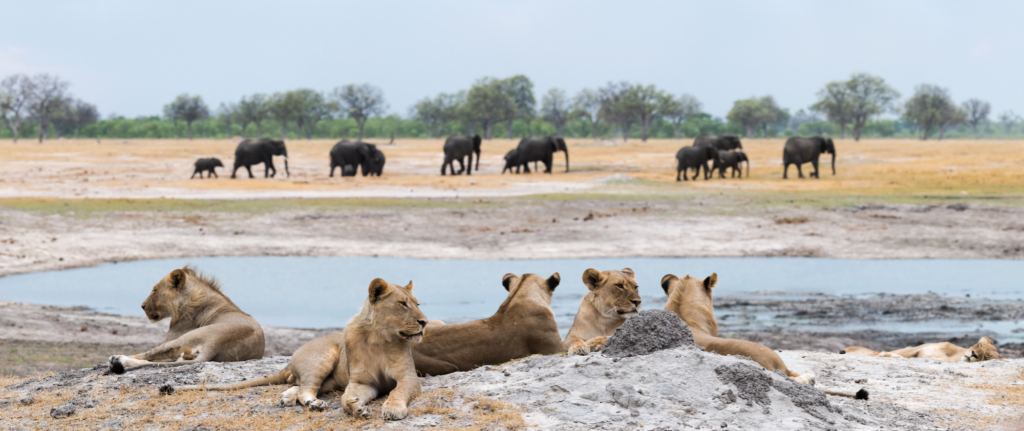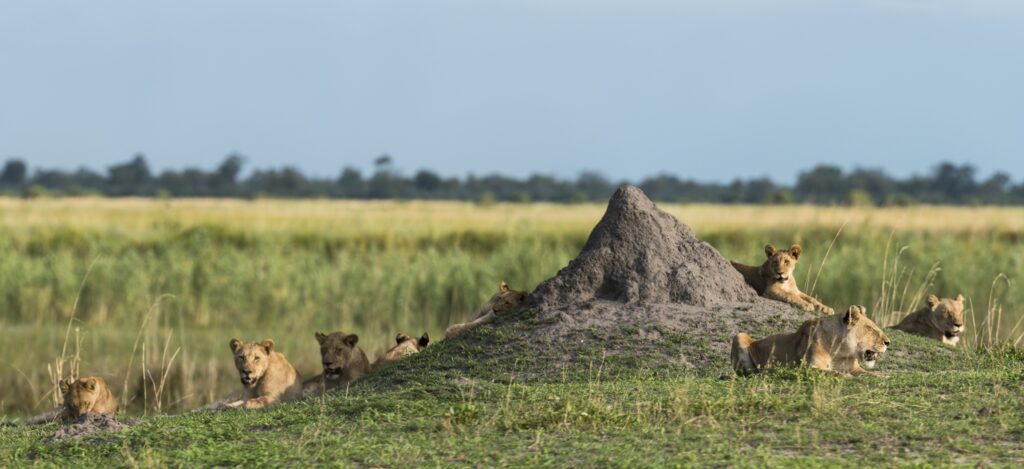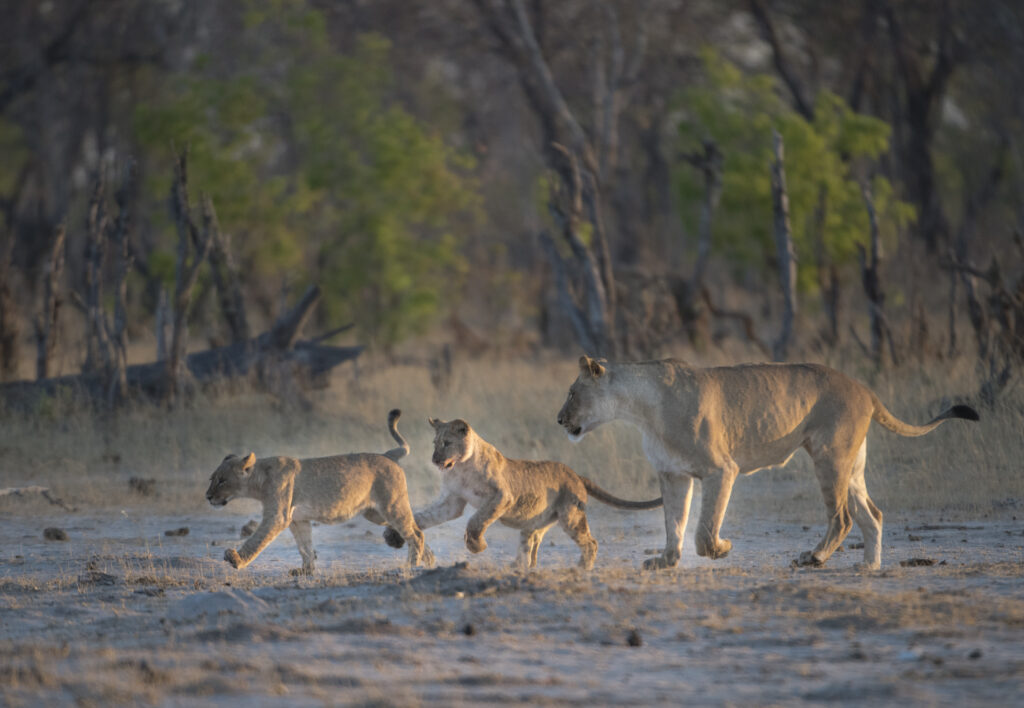:format(webp))
Conservation of big cats, biodiversity and communities in Hwange National Park
The project aims to mitigate threats such as poaching and the reduction of prey populations in the KAZA region, in particular by monitoring wildlife populations, strengthening law enforcement, supporting anti-poaching units and engaging local communities.
:format(webp))
Project objectives
Strengthen law enforcement through technical and financial support to anti-poaching units (APUs), including the Scorpion APU and the Conservation Wildlife Fund Hwange (CWF APU).
Expand wildlife monitoring through SMART data collection and citizen science initiatives to support conservation management.
Strengthen community engagement through educational programs such as eco-clubs to promote conservation and empower local youth.
Increase collaboration with government agencies, NGOs and conservation partners to improve conservation impact and policy development.

Protecting wildlife in Hwange National Park
Hwange National Park (HNP) and the surrounding protected areas in Zimbabwe are an important part of the Kavango-Zambezi Transfrontier Conservation Area (KAZA TFCA). The park is home to important populations of lions, leopards, cheetahs, African wild dogs, elephants and other endangered or threatened species. However, these species are increasingly threatened by unsustainable poaching and human-wildlife conflict.

Panthera is committed to the protection of wild cats and actively addresses the challenges facing Hwange National Park and its surrounding areas. The organization is committed to protecting important species and promoting sustainable livelihoods for the local population.
Snaring, a widespread form of poaching, decimates prey populations and directly harms non-target species, including big cats. The decline in wildlife has a direct impact on the local population, as ecotourism - an important economic factor - is dependent on healthy animal populations. In addition, the illegal trade in bushmeat poses significant health risks due to the potential spread of zoonotic diseases.

This project aims to mitigate these threats by strengthening law enforcement, supporting anti-poaching units, engaging local communities and improving wildlife monitoring initiatives. By addressing these pressing challenges, the project contributes to the long-term stability of the Greater Hwange Ecosystem, ensuring the survival of its key species while promoting sustainable livelihoods for the local population.
The 4 key factors
The aim is to strengthen wildlife conservation in the HNP and surrounding areas by supporting anti-poaching measures, wildlife monitoring and community engagement initiatives. Panthera's approach to combating wildlife crime focuses on four basic principles:
Crime-specific approach: Identify and address specific threats to wildlife conservation.
Collaboration and coordination: Build partnerships and engage key conservation stakeholders to maximize impact.
Comprehensive interventions: Deploy strategies (enforcement and non-enforcement) to effectively address threats.
Impact evaluation: Continuously evaluate and refine conservation efforts to ensure sustainable success.
Project activities
The project has three main focus areas:
1 . Supporting wildlife conservation and anti-poaching
Funding the operational costs of the Scorpion and CWF anti-poaching units including salaries, uniforms, equipment and vehicle maintenance.
Carrying out mentoring visits in the field to train the anti-poaching unit teams.
2 . Community engagement and education Continue to support Children in the Wilderness (CITW) programs to educate local youth about conservation and sustainability.Expansion of eco-clubs and literacy centers in the Tsholotsho region. Implementation of conservation awareness campaigns to curb bushmeat poaching and mitigate human-wildlife conflict. 3. wildlife monitoring and data collection Expansion of SMART data collection during patrols to assess conservation impact. Training of safari guides and local conservationists for the Hwange Citizen Science program.
